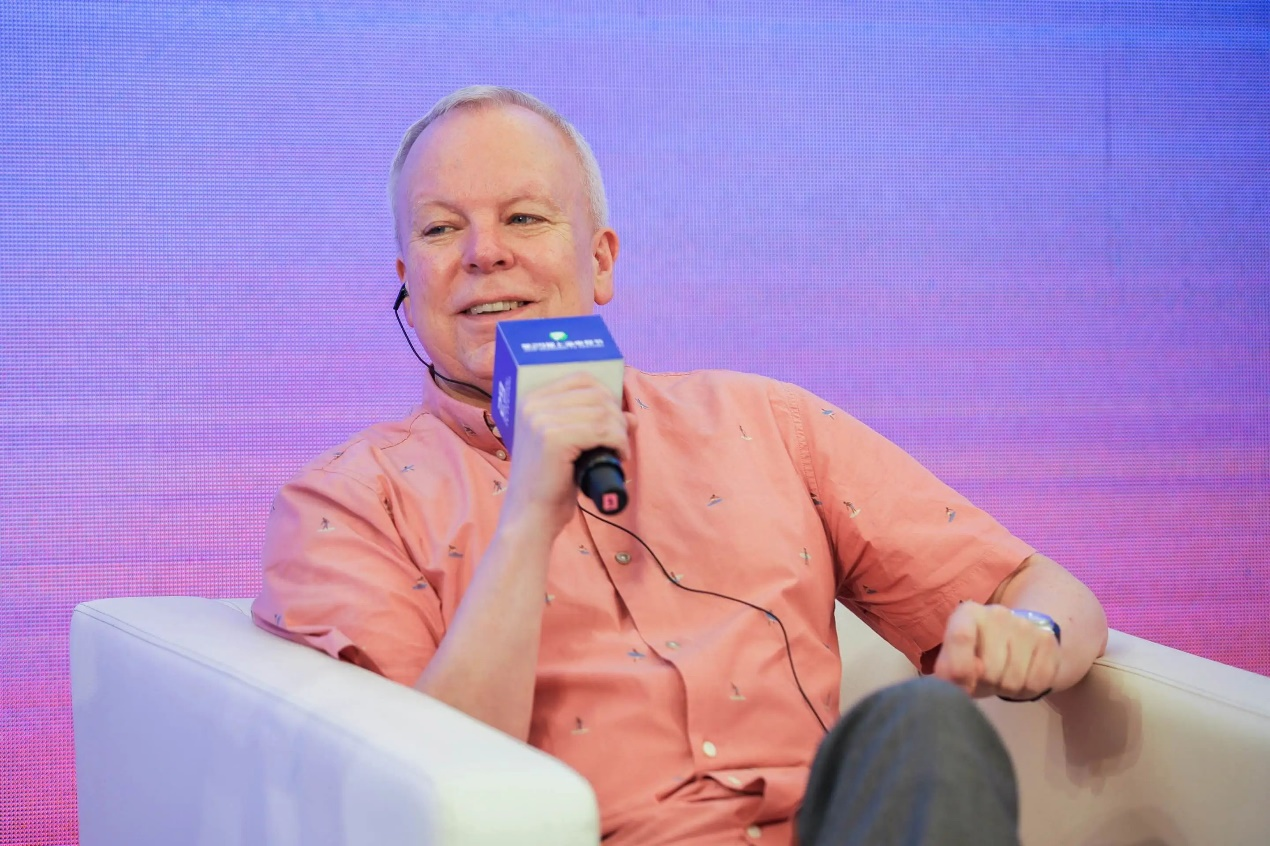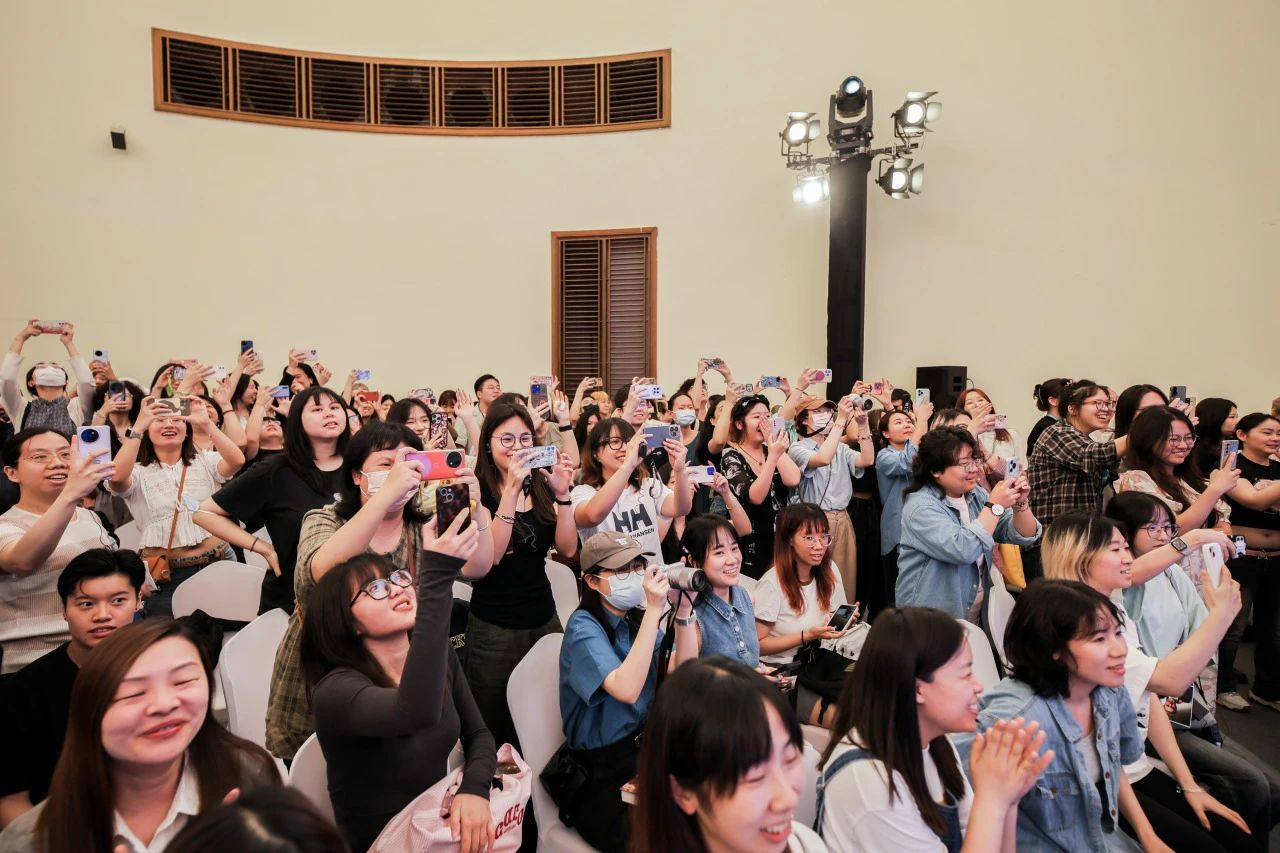STVF MARKET|Focus on International Market: The League of Gentlemen Discuss INSIDE NO. 9
The 29th Shanghai TV Festival (STVF) "Magnolia Showcase" public screening featured multiple works produced by BBC Studios, including the hit British series INSIDE NO. 9. Known for its clever concepts and subtle plot twists, the series has sparked a global frenzy with its signature absurdity, suspense, and dark humor, bringing about numerous Chinese enthusiasts. During the TV market's "Focus on International Market: Dialogue with Steve & Reece", editors and stars Steve Pemberton and Reece Shearsmith appeared. The duo, friends and collaborators for nearly 20 years, have created a series of well-known works, including THE LEAGUE OF GENTLEMEN, PSYCHOVILLE, and INSIDE NO. 9. At the event, Steve and Reece shared behind-the-scenes stories and discussed their two decades of collaboration.

How have you managed to maintain your collaboration and creativity over the past 20 years?
Reece:
Since we started making THE LEAGUE OF GENTLEMEN, we really haven't had any disagreements. Even if there are failures along the way, we always strive for consensus because we know that in this way we can produce creative films and TV shows. The magical chemistry between us has kept our partnership going for so long, and we have more projects in the pipeline. We've always been collaborative screenwriters. We continuously write scripts in our small studio in North London, turning many into TV shows, which is addictive. We hope our work is recognized by fans, as this validation is the greatest reward and key to maintaining our creativity and passion. We feel we haven't peaked yet; we can do better and keep changing our style, including the way we collaborate.
Steve:
Our partnership is excellent, starting when we met in college and continued to work together, maintaining consistency. How do we keep a good relationship? We need to give up our ego, our pride, and a lot of our personal opinions, which is a long journey.
Do you strictly follow the script during writing and filming, or is there room for improvisation?
Steve:
In THE LEAGUE OF GENTLEMEN, our writing served the actors, tailored to their styles. We didn't originally see ourselves as writers—without formal training in screenwriting or literature, we took on the scriptwriting ourselves. In INSIDE NO. 9, scriptwriting is crucial. For me, it starts with the script, and then casting and performance considerations come into play.
In the process of acting, there might be elements of improvisation. Does this lead to changes in the script?
Reece:
Shooting a TV series involves various aspects, starting with the script, which must be well-written and highly creative—without a solid script, nothing else follows. Once the script is ready, it's shared with the production team who must agree with the details as they join in making the TV show. For example, I might have a vision of how it should be shot, the director might have ideas, and then there are set designers, each bringing their thoughts. We discuss these collectively.
Sometimes, elements not originally in the script emerge, and suggestions may lead to script modifications. This is a normal part of our work, where script discussions are frequent. In an episode of INSIDE NO. 9, there's a scene set on a quiet night featuring a silent burglary. We felt no script was needed there, so the set design was crucial. Likewise, we lacked experience with indoor swimming pools, which meant the script couldn't perfectly capture that aspect, necessitating ongoing updates during filming. Think of the script as a mosaic wall, where each tile is a contribution from someone else or yourself. Through collective effort, it becomes a wall or a building.

If you were to film a new season now, would you discuss the story together, or would one of you handle the scriptwriting and the other the production?
Steve:
We work on it together; we don't split the tasks. Each season of the series starts from scratch. We might begin with a setting or a theme, sometimes even starting from the end and working our way backwards. We always sit together in the office to discuss, which is also a way to motivate each other.
It's crucial to have a good starting point. If we latch onto a compelling theme or setting, we might spend two or three days discussing it nonstop before we even start writing. If the initial idea is solid, the writing process can be swift, usually taking about 5 to 10 days, because we already know what we need to write about.
So, is it possible that you only need three or four days to figure out how to start writing a piece?
Reece:
Yes, once we decide that the story is what we want, we discuss how many scenes it will have and where it should go. It's difficult to write if you don't know where the story is headed. We then send the script to the producer. For the past ten years, we've been working with the same producer who might annotate the script, pointing out what is unclear or needs changing. A good producer won't make many notes. We're fortunate our producer doesn't impose many changes, which makes this an excellent collaboration with minimal interference.
Could you give a specific example, such as A QUIET NIGHT IN—a concept that everyone finds very interesting and creative? Where did the inspiration for this come from?
Steve:
Our earliest story in PSYCHOVILLE began with this idea, and then we carried it into INSIDE NO. 9. We wanted to explore different ways of telling a story and decided to try writing a story with no dialogue at all. What kind of scenario requires complete silence? We thought of a heist. At that time, we weren't sure how to end the story or whether a silent 30-minute episode could sustain a good story, but it was incredibly exciting to develop. We brainstormed and wrote simultaneously, ending up with 20 pages that turned into a fantastic episode.
Looking to the future, the TV industry is rapidly evolving with innovations like AI and new platforms shaping its development. Do you have any plans for your future work and creations you can share with us?
Steve:
I think using AI to generate content can only be based on past events. Writing scripts for INSIDE NO. 9 often presents unique challenges because we strive not to repeat past creative efforts.
Reece:
We plan to write a one-hour stage show, hoping to premiere it in January next year and perform it for three months in London's West End. We also hope to introduce some new stories from INSIDE NO. 9. As actors, we started our careers on stage, and the stories of INSIDE NO. 9 began there too. Sharing stories with audience on stage feels like coming home.

In your work, sometimes you perform on stage. What kind of inspiration do you get from the audience?
Reece:
For instance, we might spend a long time writing a script and five days shooting it, and we have to give our best performance because it will be permanently on the screen. But if it's a stage production, you can continuously refine it based on audience reactions, improving it to create a better version. That's the magic of theater; you always have a second chance.
Steve:
I wish I had a clone so I could keep performing forever. Last year, we performed in the West End of London; we'd meet during the day to write the script for INSIDE NO. 9 and perform on stage at night, maintaining a perfect balance. We're incredibly fortunate to be able to work on different projects every year and collaborate with various platforms.


The 29th STVF is hosted by the National Radio and Television Administration, China Media Group, and the Shanghai Municipal People’s Government, and organized by Shanghai Municipal Administration of Radio and Television and Shanghai Media Group, with co-organization by the Administration Committee of Lin-gang Special Area of China (Shanghai) Pilot Free Trade Zone, and special support from Shanghai Lingang Special Area Investment Holding (Group) Co., Ltd.




